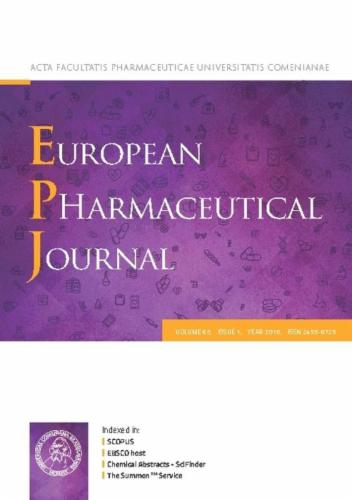长期太空任务的药理学对策:解决心血管挑战和推进适应太空的医疗保健。
IF 4.3
3区 医学
Q1 PHARMACOLOGY & PHARMACY
引用次数: 0
摘要
未来在低地球轨道(LEO)以外的长期载人航天任务将给宇航员带来新的医疗保健挑战,对此,药理学对策(药理对策)至关重要。本文重点介绍了ESA SciSpacE路线图中描述的当前药物对策挑战,重点关注心血管系统作为模型,以展示这些挑战和建议的潜在含义。新的药理学方法和程序需要适应航天条件,包括伦理和监管方面的考虑。潜在的策略包括将药物基因组学等药理生物标志物与治疗药物监测相结合,推进微采样技术,以及实施药物警戒系统,以深入了解药物暴露的药代动力学/药效学(PK/PD)航天改变。新出现的治疗方法(如长期方案)或在空间环境中制造药物可以解决与药物储存和稳定性有关的具体问题。生物银行与类器官、器官芯片、人工智能(AI)等创新技术的整合,包括机器学习,将进一步增强PK模型,从而实现个性化治疗。这些创新的医药工具还将使在地球和空间取得互惠的改变游戏规则的保健发展成为可能,并且对于确保空间探索者获得安全有效的医药服务至关重要。本文章由计算机程序翻译,如有差异,请以英文原文为准。

Pharmacological countermeasures for long-duration space missions: addressing cardiovascular challenges and advancing space-adapted healthcare
Future long-duration crewed space missions beyond Low Earth Orbit (LEO) will bring new healthcare challenges for astronauts for which pharmacological countermeasures (pharmacological countermeasures) are crucial. This paper highlights current pharmacological countermeasures challenges described in the ESA SciSpacE Roadmap, with a focus on the cardiovascular system as a model to demonstrate the potential implication of the challenges and recommendations. New pharmacological approaches and procedures need to be adapted to spaceflight (spaceflight) conditions, including ethical and reglementary considerations. Potential strategies include combining pharmacological biomarkers such as pharmacogenomics with therapeutic drug monitoring, advancing microsampling techniques, and implementing a pharmacovigilance system to gain deep insights into pharmacokinetics/pharmacodynamics (PK/PD) spaceflight alteration on drug exposure. Emerging therapeutic approaches (such as long-term regimens) or manufacturing drugs in the space environment, can address specific issues related to drug storage and stability.
The integration of biobanks and innovative technologies like organoids and organ-on-a-chip, artificial intelligence (AI), including machine learning will further enhance PK modelling leading to personalized treatments. These innovative pharmaceutical tools will also enable reciprocal game-changing healthcare developments to be made on Earth as well as in space and are essential to ensure space explorers receive safe effective pharmaceutical care.
求助全文
通过发布文献求助,成功后即可免费获取论文全文。
去求助
来源期刊
CiteScore
9.60
自引率
2.20%
发文量
248
审稿时长
50 days
期刊介绍:
The journal publishes research articles, review articles and scientific commentaries on all aspects of the pharmaceutical sciences with emphasis on conceptual novelty and scientific quality. The Editors welcome articles in this multidisciplinary field, with a focus on topics relevant for drug discovery and development.
More specifically, the Journal publishes reports on medicinal chemistry, pharmacology, drug absorption and metabolism, pharmacokinetics and pharmacodynamics, pharmaceutical and biomedical analysis, drug delivery (including gene delivery), drug targeting, pharmaceutical technology, pharmaceutical biotechnology and clinical drug evaluation. The journal will typically not give priority to manuscripts focusing primarily on organic synthesis, natural products, adaptation of analytical approaches, or discussions pertaining to drug policy making.
Scientific commentaries and review articles are generally by invitation only or by consent of the Editors. Proceedings of scientific meetings may be published as special issues or supplements to the Journal.

 求助内容:
求助内容: 应助结果提醒方式:
应助结果提醒方式:


